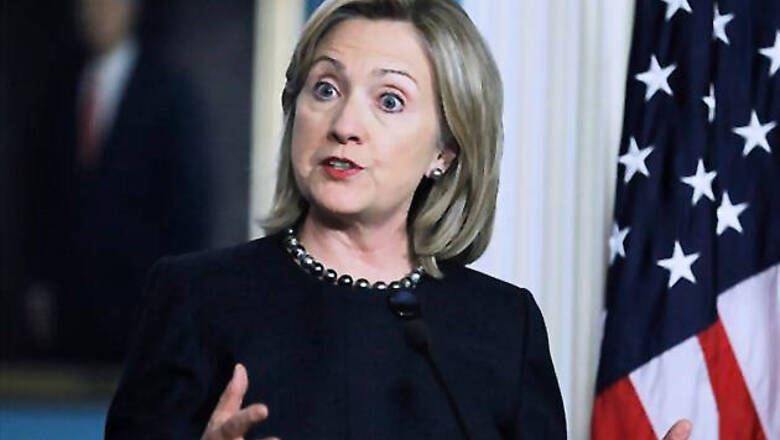
views
Washington: Hillary Rodham Clinton's decision to eschew government email and use her own private server as US secretary of state has raised questions about secrecy, security and the law - including whether she might have deleted important messages instead of preserving them for public scrutiny and history. The controversy has shadowed her path toward a likely US presidential campaign. Here's a brief explanation of her email practices and the fallout:
What's different about Clinton's email?
As the top US diplomat from 2009 to 2013, Clinton did all her official work using a personal email account. Federal officials are generally expected to use their agencies' email systems. Clinton also didn't use a commercial email server, like Google operates for Gmail, either. She had her own email server, traced to her suburban New York base. Prior secretaries of state also used nongovernment email for work at times, or avoided using email much at all. Clinton is the only one known to have conducted all unclassified government business on private email address.
Was it something she said?
Was Clinton's email too secret? Or was it too exposed? A private account could have allowed her to withhold or destroy messages that she's legally required to turn over for congressional investigations or lawsuits or to make available to the public, the press and historians under open-records law. Last year, President Barack Obama signed a law requiring the archiving of officials' emails, including those on private accounts. Clinton, who had left office by then, said she turned over more than 30,000 work-related emails to the State Department, but she also got rid of roughly the same number of emails because she deemed them personal in nature. Only Clinton and her aides decided what to turn over. Clinton aides and the State Department both say she never received or transmitted classified information on her private account.
A clouded campaign
Clinton remains the clear frontrunner for the Democratic presidential nomination. Still, the controversy seems likely to linger into the 2016 race. The story fits with critics' longstanding portrayal of Clinton as secretive and operating above the rules. The email controversy has breathed new life into a longstanding Republican line of attack against Clinton: Her handling of the deadly 2012 attacks against the US diplomatic compound in Benghazi, Libya. The congressional committee investigating the attack has issued subpoenas seeking messages that might not have been divulged. Even some Democratic leaders have expressed concern that the email issue could overshadow their party's policy messages. The State Department will review her emails for possible public release and for any security breaches. The process could take months, pushing the matter deeper into the presidential campaign.


















Comments
0 comment